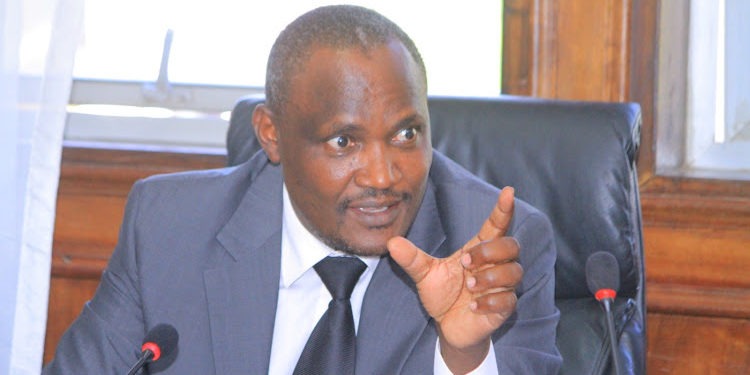Kenya’s government has announced plans to reduce key tax rates in the medium term, including cutting Value Added Tax (VAT) from 16% to 14% and corporate tax from 30% to 25%, as part of a broader strategy to enhance economic growth and improve tax compliance.
The surprise move was revealed by Treasury Cabinet Secretary John Mbadi during his speech at the launch of the FY2025/26 budget preparation process.
“We are not thinking of increasing tax rates. We are going to reduce VAT in the medium term from 16% to about 14%. We want to reduce other taxes including corporation tax or corporate tax from 30 to 25%,” Mbadi stated, emphasizing a shift in strategy towards broadening the tax base rather than increasing rates.
Mbadi outlined a comprehensive fiscal consolidation plan aimed at reducing the budget deficit while maintaining essential services and supporting key economic sectors.
The Cabinet Secretary projected Kenya’s economic growth at 5.5% in 2025, a slight decrease from 5.6% in 2023, against a backdrop of global economic uncertainty. “Global growth is projected to drop slightly to 3.2% in 2024 from 3.3% last year before then recovering back to 3.3% in 2025,” Mbadi explained, highlighting the interconnectedness of Kenya’s economy with global trends.
Central to the government’s fiscal strategy is the adoption of zero-based budgeting for FY2025/26 and beyond. This approach requires all expenses to be justified for each new period, departing from the traditional incremental budgeting method. “You start afresh. Explain every expenditure. Every coin that you are going to ask for, you will have to explain,” Mbadi emphasized, signaling a significant shift in budget preparation.
The government is also implementing major reforms in public financial management. A transition from cash to accrual basis accounting is underway, aimed at improving financial reporting and asset management. “The accrual accounting will enable the government to account for all its assets and liabilities including all government assets,” Mbadi explained.
Additionally, an end-to-end e-government procurement system is set to be rolled out by January, targeting enhanced transparency and accountability in public spending. “The system must be rolling from January. There will be no excuses, no piloting anymore,” Mbadi asserted.
Addressing the persistent issue of pending bills, Mbadi announced the establishment of a verification committee to analyze outstanding payments from July 2005 to June 2022. The committee’s report, expected by October 2024, will inform future fiscal measures. The Cabinet Secretary also stressed the importance of treating expenditure carryovers from FY2023/24 as a first charge on the FY2024/25 budget.
The budget priorities for FY2025/26 will align with Kenya’s Fourth Medium Term Plan (MTP4) of Vision 2030 and the Bottom-Up Economic Transformation Agenda. Five key pillars were identified: agricultural transformation, support for micro, small, and medium enterprises (MSMEs), housing, healthcare, and the digital superhighway and creative economy.
Mbadi set ambitious fiscal targets, aiming to improve total revenue to about 17% of GDP in FY2025/26 while decreasing total expenditure to below 21.5% of GDP. The ultimate goal is to achieve the East African Community convergence criteria fiscal deficit of 3% of GDP.
The Cabinet Secretary also addressed the financial challenges facing county governments, hinting at the possibility of advance payments to prevent operational disruptions. “I’ve just sought opinion of the attorney general today to agree with us that we can make advanced payments to counties,” Mbadi revealed, acknowledging the urgency of the situation.
Climate change mitigation and adaptation were identified as key areas for resource allocation, recognizing the global importance of this issue. “We can’t run away now from climate change. It is the talk of the world,” Mbadi stated.
Throughout his speech, Mbadi emphasized the importance of public participation in the budget process, urging sector working groups to engage stakeholders meaningfully and consider priorities arising from public engagement.













